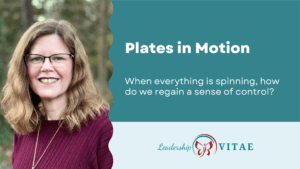
When an employee’s passion and vision are aligned to the vision of the organization they work for, magic happens. Alignment, by definition, is
“A state of agreement or cooperation among persons, groups, nations, etc with a common cause or viewpoint.”
What is an organization’s vision if not a cause for its team to rally around and deliver? The “agreement or cooperation” is much easier to gain if an individual believes he or she can achieve his or her own personal and professional goals through the achievement of the “common cause.” It’s only common if BOTH the leadership of the organization and the individual’s expected to deliver are all vested in it.
 In today’s economy, there are more people than jobs available. As hiring managers, as soon as we have an opening, we can expect a flood of resumes. It can be overwhelming – even with help – to screen resumes, conduct informational interviews, and then more in-depth interviews for those that we think might be a good fit. That’s an awful lot of time spent on individuals that may or may not be “the one.” What value is being generated in those conversations? What could be?
In today’s economy, there are more people than jobs available. As hiring managers, as soon as we have an opening, we can expect a flood of resumes. It can be overwhelming – even with help – to screen resumes, conduct informational interviews, and then more in-depth interviews for those that we think might be a good fit. That’s an awful lot of time spent on individuals that may or may not be “the one.” What value is being generated in those conversations? What could be?
I am in the process of building out a team, and as a result I spend a LOT of time reviewing resumes and having conversations with people. In theory, 30+ minutes of my life and theirs could be “wasted” if the individual is not the right fit for my opening. To combat the waste, I do my best to have a positive impact on each candidate in those few minutes.
So, how do I provide a positive impact on someone in 30 minutes? I start by asking three questions:
1. What work do you do that you really enjoy?
What tasks or activities, if you could spend all day doing them, would make you RUN to work each day? It’s the stuff that excites you, that makes your job feel less like work and more like fun.
2. What work do you do or have done that you really detest?
On the flip side, what activities do you delay until you have to deal with them? The ones that make you feel like you have a hot poker being jabbed in your eye. The work that makes the job feel like work.
3. What do you want for yourself professionally and personally?
If you could define your perfect day, what would it feel like? What characteristics would you use to describe the life you want? Your complete life, both work and home.
These may seem like odd questions, but they are extremely important to understanding what drives and motivates someone. What they are looking for, that they’ll be looking for again in a few months if it can’t be found in the role I am looking to fill.
What do I do with this information? Each question tells me something different…
1. Will he or she be motivated to come in every day and do the job?
When I think about the characteristics of my open position, does it align with the type of work the individual loves doing? Happy employees are more productive and if the work calls to them, they’ll achieve more, faster. Works is called work for a reason, but it doesn’t have to feel like a prison term. I need to be honest with myself and the individual about what the job is and isn’t.
For example…if someone indicates that they love getting into the details and working through a problem to resolution, that could be an amazing fit for an analyst role. If, however, the individual has applied for a management position, I’d be more concerned. Will this individual allow the team to problem solve? Will he or she be so caught up in the weeds that they miss the signs that say “trouble ahead?”
2. Do I need to worry he or she will avoid or procrastinate on key tasks?
What someone doesn’t enjoy doing can be just as telling. If there are parts of the job that are painful, they are likely to get delayed or avoided altogether. We don’t all love every aspect of our jobs, but it’s important to know what we struggle with or really don’t like – particularly if it’s a core part of a job we’re considering.
I find many hesitate to answer this question in fear that they will box themselves out of an opportunity. Once they answer the question, however, it quickly points to why they may be struggling with a current role or their career track, or why they absolutely love what they do. It is only the combination of what they do and do not enjoy that equates to a particular role fit.
Every role has key elements, such as interacting with others, dealing with conflict, or attention to detail. Not every role is the same, nor is every individual. Role fit – aligning the likes and dislikes with what the role is and isn’t – is key to job fit.
3. Can his or her vision of the future be achieved in this role?
Knowing what someone aspires to is the difference between role fit and a perfect job fit. When an individual understands how to achieve personal vision through the success of the organization, they are passionate and committed to that success.
It’s possible that there’s a good role fit, but not the best job fit. If this is the best candidate, my preference is to communicate where I see the potential gaps and leave it up to the individual. They may not want the position, but if they go in with their eyes open, they are committing to the job I have. This is a better outcome than having them assume an alignment that isn’t there or trying to make the job out to be something it isn’t.
By the end of a 30 minute discussion, a candidate leaves with both of us on the same page, thinking…
· This job is the best possible fit for the individual and the team and it’s on to next steps
OR
· There is likely a better role/job fit out there and what that might be
I have heard more than once “this is the first time a manager has ever talked to me like this.” It is probably true, but I challenge that we have the opportunity in every interaction, even if a candidate doesn’t ultimately join our team, to help them on their path to finding the right fit. It could be somewhere else in the company or with a different organization altogether. The result is the same…changing someone’s life for the better and making the most of that 30 minutes you have together.
I’ve love to hear from you – what questions do you ask during interviews to determine potential alignment?









2 Responses